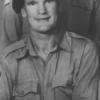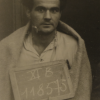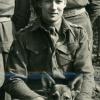Britain's envoy successively to the Soviet Union and NATO, Sir John Killick, who has died aged 84, was one of the distinguished breed of diplomats who joined the Foreign Office straight from wartime service in the Armed Forces.
He was almost 20 when the Second World War broke out, and he spent the next seven years in uniform, first with the Suffolk Regiment and then with the 1st Airborne Division in Arnhem where he was captured. In between these periods, he had a varied Army career.
John Edward Killick was educated Latymer Upper School, at University College, London and then briefly, on the eve of the war in 1939, at Bonn University. In 1941, he retrained and transferred to the Intelligence Corps.
He was posted to the Gambia to carry out topographical work for an attack on Dakar, having at his disposal maps that were several decades old. The attack was called off, and he returned to the UK for parachute training at Ringway.
In early 1944, he was called to the Baker Street headquarters of SOE and given a large parcel of francs for an operation in Brittany. The operation was cancelled and he regretfully had to return the money.
Later that year Killick, then a captain, parachuted into Arnhem on Op MARKET GARDEN as OC, 89 Field Security Section, Intelligence Corps. Part of the section arrived by glider.
Their first task was to round up known Dutch Nazi sympathisers and interrogate German PoWs, but, because the scenario developed so rapidly, the unit's role changed into an infantry one. By the end of the battle, he found that his section had been decimated. Onlv three members successfully swam across the Rhine. The rest, among whom was Killick, were killed, wounded or captured.
Killick made an unsuccessful bid to escape after being taken prisoner. Never one to waste time, he used his period in captivity to learn the guitar.
In contrast to the public image of a stuffy diplomat, Killick was warm and sympathetic with a keen sense of fun. His repertoire of songs, in about 10 languages, enlivened many a diplomatic party.
Years later, when he left his NATO post, he treated his guests at his farewell party to a succession of light hearted songs accompanying himself on the guitar to rounds of applause.
A sequel to the Arnhem came in March 2004 when he was an honoured guest at the annual Intelligence Corps Officers' Dinner at the Priory Mess, Chicksands. He was presented to his surprise by a framed photograph taken during the battle. He is seen walking down a road, Sten gun in hand, looking for one of his corporals who had been wounded.
By the time lie was demobilised in 1948 friends could detect that the Army had put a clear stamp on his personality. Although he was often a jocular speaker, he had a clear and incisive mind. Under pressure in an international crisis, he displayed determination and cool nerves.
After two years in the Foreign Office after the war, he was assigned to the Control Commission in Germany concerned with coping with the needs of a hungry and battered British zone of occupation. He stayed in Germany for three years. It was the era of the airlift that defeated the Soviet blockade and the creation of the Federal Republic.
Among the host of career posts that followed, he spent four years in Washington, Britain's largest embassay, on promotion to counsellor.
In 1971, at 52, he went to Moscow as Britain's new ambassador to the Soviet Union. During his tour there, the British Government expelled more than 100 Soviet Union spies operating in London under diplomatic cover. The Russians retaliated, and the embassy in Moscow found itself seriously undermanned. He faced up to the situation calmly but firmly.
One of the Diplomatic Service's most important appointments was that of Ambassador to NATO. He went to Brussels in 1975 and stayed until his retirement four years later. His going was marked also by his promotion to GCMG, having been appointed KCMG when he set out for Moscow eight years earlier.
He died on 12 February 2004.





Latest Comments
There are currently no comments for this content.
Add Comment
In order to add comments you must be registered with ParaData.
If you are currently a ParaData member please login.
If you are not currently a ParaData member but wish to get involved please register.